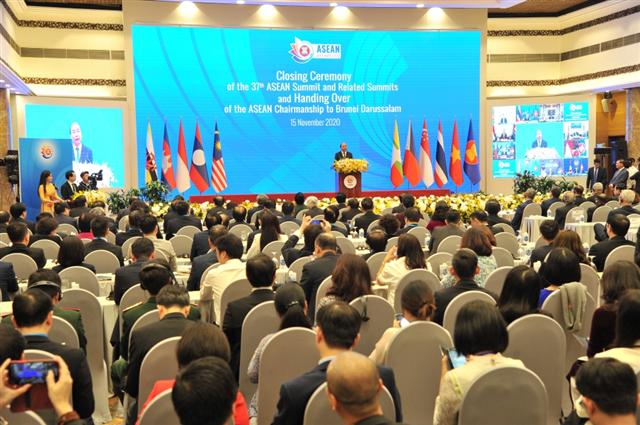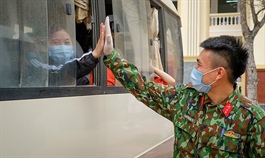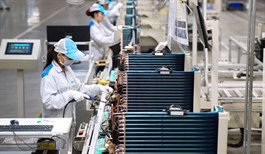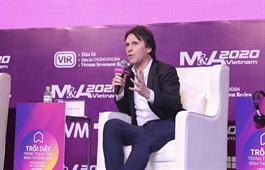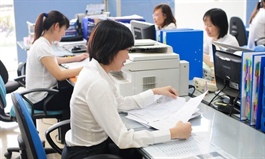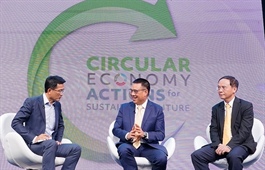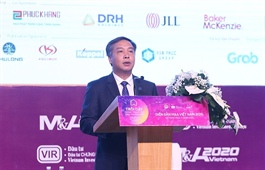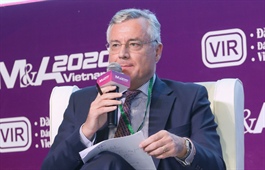Vietnam caps term as ASEAN Chair with signing of major trade pact
Vietnam caps term as ASEAN Chair with signing of major trade pact
The mid-November signing of the Regional Comprehensive Economic Partnership (RCEP) capped Vietnam’s term as Chair of the Association of Southeast Asian Nations (ASEAN), which is being hailed for its flexible and innovative efforts in both policies and practices.
|
Cohesive and Responsive
As ASEAN Chair 2020, Vietnam worked with its partners to realize the goal it had set itself of providing a “Cohesive and Responsive” spirit. Vietnam’s choice of slogan last year proved prophetic in light of the coronavirus pandemic.
The 26th ASEAN Economic Ministers’ Retreat that took place in early March in the southern central coastal city of Da Nang laid the groundwork for agreement on economic cooperation and necessary adjustments needed to confront the pandemic. Frequent online meetings and consultations since then have been successful in maintaining cooperation momentum and leading the bloc’s highly effective response to Covid-19. As Prime Minister Nguyen Xuan Phuc noted, “Cohesive and Responsive” was not only the 2020 theme, it has become the brand of ASEAN.
Regarding economic cooperation, Vietnam proposed 13 initiatives, eight of which have been completed and the remaining five will be completed before 2020 ends. These initiatives were designed to maintain trade exchanges and strengthen regional cooperation in confronting the pandemic and post-pandemic economic recovery. For example, the Hanoi Plan of Action on Strengthening ASEAN Economic Cooperation and Supply Chain Connectivity in Response to the Covid-19 Pandemic was approved by ASEAN Economic Ministers on June 4, 2020. At the 19th ASEAN Economic Community Council Meeting on November 10, the ministers signed a Memorandum of Understanding on dealing with non-tariff issues as a concrete step to realize Hanoi Plan.
RCEP signature
The Regional Comprehensive Economic Partnership, the world’s largest trade pact, was signed on November 15 by leaders of 15 countries after eight years of negotiations.
The region-wide trade deal which involves ten ASEAN countries, as well as China, Japan, the Republic of Korea, Australia and New Zealand, will contribute to nearly 30 percent of the world’s Gross Domestic Product (GDP) of US$26.2 trillion and create a market covering nearly one third of the world’s population.
Prime Minister Phuc said ASEAN and its partners have completed an enormous task and preparations for a new promising face of economic and trade cooperation. The RCEP agreement will accelerate the ASEAN economic community building and make the bloc a dynamic and strong partner in promoting cooperation for shared prosperity, he said.
A World Bank (WB) study in 2018 forecast that the RCEP implementation could increase Vietnam’s GDP by 0.4 percent by 2030.
Apart from commitments to opening goods, service and investment markets, RCEP boosts simplification of customs procedures and provides rules of origin to facilitate trade. Import tariff reductions will open up new opportunities for products from such sectors as telecommunications, information technology, textiles and garments, footwear and agriculture. RCEP is an important tool for businesses to participate in regional and global supply chains.
Minister of Industry and Trade Tran Tuan Anh said that once the RCEP takes effect, Vietnamese companies will have more opportunities to expand markets, join regional value chains, and attract foreign investment.
While authorities will need to offer information and help implement the agreement, Anh said, businesses need to be proactive in taking the opportunities offered by the agreement and seeking information about its content.
“Vietnamese enterprises need to change their thinking and consider competitive pressure a driving force for innovation and development. RCEP and free trade agreements will benefit those businesses that take the initiative in adapting to changes in the business environment by building and adjusting their medium- and long-term business plans,” Minister Tran Tuan Anh said.


